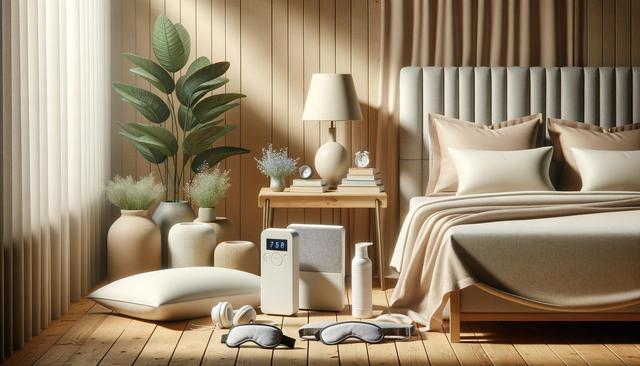Understanding Sleep Challenges in Older Adults
As people age, their sleep patterns often change, leading to difficulties such as frequent awakenings, lighter sleep, or trouble falling asleep. These changes can stem from a variety of factors, including underlying health conditions, medication side effects, decreased physical activity, and changes in circadian rhythms. Sleep disorders like insomnia and sleep apnea are more common among seniors and can significantly impact quality of life. Recognizing these challenges is the first step toward finding appropriate senior sleeping aids that can help improve rest and overall well-being.
Older adults may also experience increased sensitivity to noise and light, which can further disrupt nighttime rest. Addressing environmental factors and adopting a consistent bedtime routine can make a noticeable difference. However, when lifestyle changes alone aren’t enough, targeted sleep support solutions can offer relief and enhance sleep quality for elderly individuals.
Natural Sleep Aids and Supplements for Seniors
Many older adults prefer natural sleep aids that offer gentle support without the risk of dependency. Herbal supplements and naturally derived sleep enhancers can be effective options when used responsibly and under the guidance of a healthcare provider. Some of the most commonly used natural senior sleeping aids include:
- Melatonin: A hormone that helps regulate the body’s sleep-wake cycle.
- Valerian root: Known for its calming effects and potential to improve sleep latency.
- Chamomile: Often consumed as tea, it offers mild sedative effects.
- Magnesium: Supports nerve function and may promote deeper sleep.
These supplements are generally well-tolerated, but it’s important to consult with a doctor before starting any new regimen, especially if the individual is already taking prescription medications. The goal is to support sleep without introducing new health risks.
Sleep Accessories that Promote Comfort and Relaxation
Beyond supplements, a range of sleep accessories can enhance comfort and support restful sleep in older adults. These tools aim to create a soothing sleep environment and address common physical discomforts experienced during the night. Some helpful sleep accessories include:
- Adjustable beds that support a more ergonomic sleep posture.
- Orthopedic pillows designed to reduce neck and back strain.
- Weighted blankets that may help reduce anxiety and promote calmness.
- White noise machines to mask disruptive sounds.
- Blackout curtains to block out unwanted light.
Investing in the right sleep accessories can make a significant difference in sleep quality. These aids are especially useful for older adults dealing with joint discomfort, poor circulation, or heightened sensitivity to environmental changes.
Behavioral and Lifestyle Sleep Strategies
Incorporating behavioral changes into daily routines can be an effective and sustainable way to improve sleep for seniors. Cognitive Behavioral Therapy for Insomnia (CBT-I), for example, is a well-regarded approach that helps individuals address the thoughts and behaviors that interfere with sleep. This strategy is particularly beneficial as it avoids medication and focuses on long-term improvement.
Other helpful lifestyle strategies include:
- Maintaining a regular sleep schedule, even on weekends.
- Limiting caffeine and alcohol intake, particularly in the evening.
- Engaging in daily physical activity, such as walking or stretching.
- Reducing screen time before bed to minimize blue light exposure.
When consistently practiced, these habits can support a more restful night and reduce the need for other sleep aids. They also contribute to overall health and well-being, which in turn positively influences sleep quality.
When to Seek Medical Guidance for Sleep Issues
Although many senior sleeping aids can provide relief, it’s important to recognize when professional help is needed. Persistent sleep difficulties may indicate an underlying condition that requires medical attention. Sleep apnea, restless leg syndrome, and chronic insomnia are examples of issues that often need a formal diagnosis and treatment plan.
Older adults should consult a healthcare provider if they experience:
- Prolonged difficulty falling or staying asleep.
- Daytime drowsiness that interferes with activities.
- Frequent loud snoring or gasping during sleep.
- Unexplained mood changes or memory issues.
Medical professionals can recommend appropriate interventions, which may include sleep studies, medication adjustments, or referrals to sleep specialists. Taking a proactive approach ensures that sleep problems are managed effectively and do not lead to further health complications.
Conclusion: Supporting Better Sleep for Older Adults
Improving sleep quality in older adults requires a thoughtful and holistic approach. From natural supplements and comfortable sleep accessories to behavioral strategies and medical guidance, there are many senior sleeping aids available to support restful sleep. By understanding the unique challenges faced by elderly individuals and exploring suitable solutions, it’s possible to enhance both nightly rest and overall quality of life. Whether seeking gentle herbal aids, practical sleep tools, or professional advice, seniors and their caregivers can find options tailored to their specific needs and preferences.


